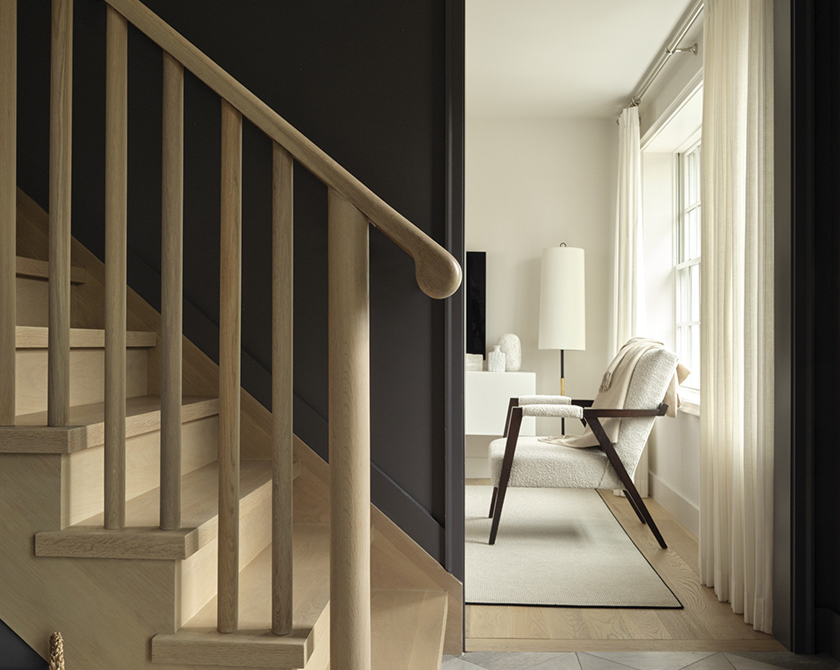Home renovations are exciting, but they can also be overwhelming. Whether you’re planning a complete remodel or simply refreshing a few rooms, it’s natural to have a lot of questions. From budgeting to timelines, knowing what to expect can make the renovation process smoother and more enjoyable. In this blog, we’ll answer some of the most common questions homeowners have about renovations to help guide you through your next project.

In this blog, we’ll explore the key differences between custom homes and pre-built homes, from design flexibility to cost considerations, and how each option may impact your overall homeownership experience.
1. How Do I Budget for a Home Renovation?
One of the first questions most homeowners have is how much a renovation will cost. Setting a budget is essential, and it’s important to be realistic. Renovation costs can vary widely based on the size of the project, the quality of materials, and the complexity of the work.
2. How Long Will My Renovation Take?
The length of a home renovation depends on several factors, including the size of the project, the complexity of the work, and the availability of materials. A smaller project, like painting a room or installing new flooring, may only take a few days or weeks. On the other hand, more significant renovations, such as a kitchen or bathroom remodel or a full home overhaul, can take several months.
3. Should I Renovate or Move?
Many homeowners face the dilemma of whether it’s better to renovate their current home or move to a new one. There are a few key factors to consider when making this decision:
- Cost: Renovations can be expensive, especially if you’re making major changes. However, moving also comes with its own costs, such as real estate commissions, closing costs, and moving expenses. If your current home needs significant repairs or upgrades to meet your needs, it may be more cost-effective to renovate instead of moving.
- Emotional attachment: Do you love the location of your home or the memories attached to it? If the emotional value of staying in your current home outweighs the desire for a new property, renovating may be the better choice.
- Market conditions: If the real estate market is competitive and prices are high, it might make more sense to renovate and stay in your home. On the other hand, if the market is favourable to buyers, you may want to sell and move.
4. Do I Need a Permit for My Renovation?
Permits are often required for renovations that involve structural changes, electrical work, plumbing, or alterations to the home’s footprint (such as adding a room or changing windows). The types of permits you need will depend on the scope of your project and the local building codes in your area.
5. Can I Renovate My Home in Phases?
If you’re working with a limited budget or need to live in your home during the renovation, it’s often possible to break your renovation into phases. Many homeowners start with the most urgent or high-priority areas—like the kitchen or bathroom—while leaving other parts of the house for later.
6. How Do I Choose the Right Contractor?
Choosing the right contractor is one of the most critical steps in the renovation process. You want an experienced, reliable, and trustworthy contractor. Start by asking friends, family, or neighbours who have had similar work done for recommendations. You can also search online for contractors in your area and check reviews.
Once you have a list of potential contractors, schedule consultations to discuss your project and ask about their experience with similar renovations, the timeline, and their approach to communication and problem-solving. Be sure to get a written estimate and contract and confirm that the contractor is licensed and insured.
7. Will Renovating Increase My Home’s Value?
Many homeowners undertake renovations with the goal of increasing the value of their homes. While some renovations offer a higher return on investment (ROI) than others, certain home improvements can definitely boost your home’s resale value.
Kitchen and bathroom remodels, for example, tend to provide a high ROI because they are areas that buyers often focus on. Upgrades like energy-efficient appliances, updated flooring, and enhanced curb appeal can also increase your home’s value. On the other hand, overly personalized or extravagant renovations may not always translate into a higher sale price, especially if they are out of line with the neighbourhood or the home’s original design.
8. How Can I Minimize the Disruption During Renovation?
Home renovations, especially larger projects, can be disruptive. Construction noise, dust, and debris can make it difficult to live in your home during the renovation. To minimize disruption, consider the following:
- Set up a temporary kitchen: If you’re renovating your kitchen, set up a temporary cooking area with a microwave, toaster oven, or hot plate in another room to help you get by.
- Plan your renovations for when you’ll be away: If possible, schedule them during a time when you can stay with family or rent a temporary residence.
- Communicate with your contractor: A good contractor will work with you to minimize disruptions, such as limiting work to certain hours of the day or sealing off rooms that are not being renovated to keep dust and debris contained.
9. What Are Some Common Renovation Mistakes to Avoid?
Renovations are a significant investment, and mistakes can be costly. Some common mistakes to avoid include:
- Underestimating the budget: Renovation costs can quickly add up, so be sure to set a realistic budget and leave room for unexpected expenses.
- Not having a clear plan: It’s important to have a clear vision of what you want before you start. A haphazard approach can lead to design inconsistencies or costly rework.
- Over-customizing: Personalizing your home is essential, but be careful not to overdo it in ways that may not appeal to future buyers if you’re planning to sell.
- Choosing poor-quality materials: Invest in quality materials that will last and add value to your home. Opting for cheap alternatives may end up costing more in the long run.
By avoiding these mistakes, you can ensure that your renovation goes smoothly and delivers the results you want.








